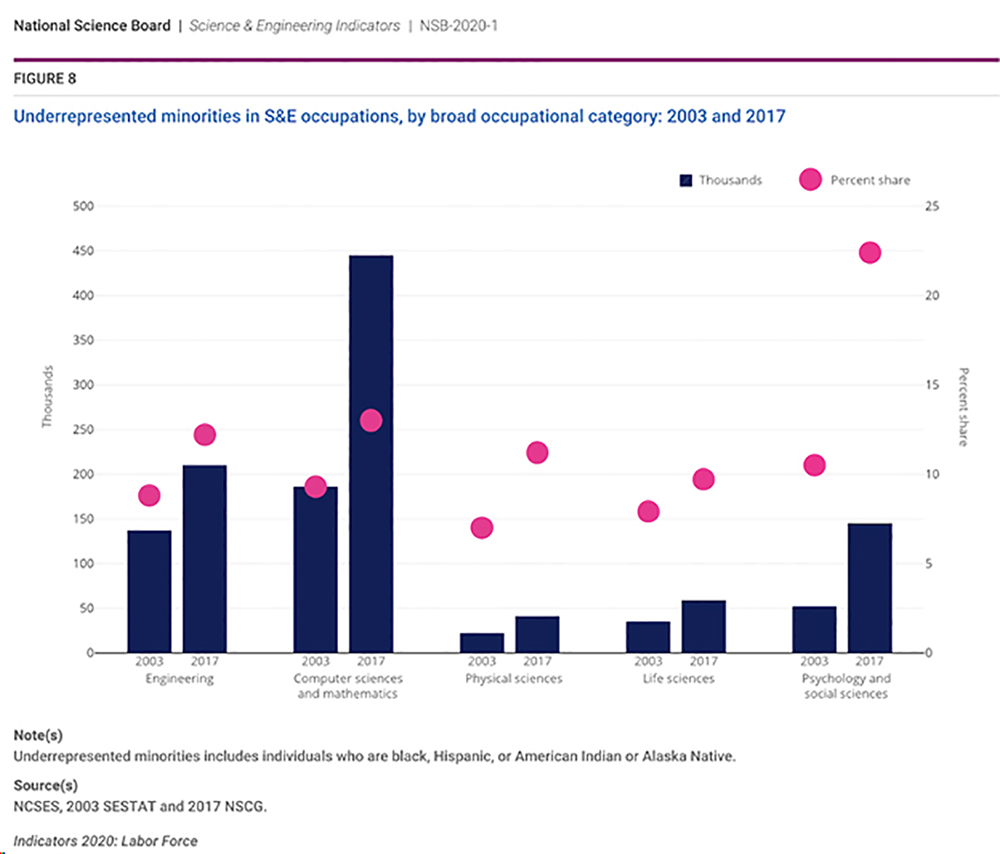Archived Content
This page is archived and provided for historical reference. The content is no longer being updated, and some of the information may have changed over time and could be outdated or inaccurate.
On Monday (March 1), the NIH launched the UNITE initiative to end structural racism and racial inequities in the health research enterprise. In his public statement announcing this initiative, Dr. Collins noted that while the NIH has supported various programs to improve diversity of the scientific workforce, these efforts have been insufficient, and that the “NIH is committed to instituting new ways to support diversity, equity, and inclusion, and identifying and dismantling any policies and practices that may harm our workforce and our science.” The success of any such effort needs to begin with acknowledging our individual and collective roles, whether intentional or unintentional, in perpetuating the disadvantages resulting from structural racism in the research enterprise, and I share Dr. Collins’ sentiment that “I am truly sorry.”
The NIH is committed to the difficult and complex work of ending structural racism and racial inequities in the NIH research enterprise. As I noted in last month’s blog, we are not starting from scratch but can rely on decades of social science research as the foundation for a comprehensive and empirically-based approach to addressing structural racism. The Office of Behavioral and Social Sciences Research (OBSSR) is committed to supporting NIH’s UNITE initiative and has already contributed in many ways to development of these efforts. I have been fortunate to serve as an ex-officio member of the Advisory Committee to the Director (ACD) Working Group on Diversity. The Behavioral and Social Sciences Research Coordinating Committee working group on structural racism and health has been sharing their initial deliberations on future research needs regarding structural racism and health with the UNITE committees. Many more efforts are underway and the OBSSR will continue to work to support these efforts while also directly addressing the vestiges of structural racism and racial inequities that are evident in our own Office by reviewing our hiring and promotion practices and continuing to make our work culture more respectful and inclusive.
In addressing workforce diversity, the behavioral and social sciences have led by example. The recent National Science Foundation report on The State of U.S. Science and Engineering 2020 shows that from 2003 to 2017, psychology and the social sciences had the largest increase in underrepresented minorities in its scientific workforce relative to the other scientific disciplines, doubling from 11 percent to 22 percent in this time period (see figure below). Some of this increase is likely due to underrepresented minorities gravitating to the types of scientific problems that the behavioral and social sciences address, but there also may be lessons learned from this increase that could be applied to other scientific disciplines to address workforce diversity. Despite these successes, we must not become complacent. Underrepresented minorities in the behavioral and social sciences continue to face barriers from structural and cultural racism in academic institutions and continue to be underfunded by the NIH relative to their white counterparts.

The NIH cannot address this problem alone, and we welcome the partnership of the research community and its academic and research institutions in eliminating structural racism and racial inequalities in the workforce. You can keep up with what the NIH is doing to address workforce diversity on the NIH UNITE website, but we also want to hear from you. The NIH has released an RFI “Inviting Comments and Suggestions to Advance and Strengthen Racial Equity, Diversity, and Inclusion in the Biomedical Research Workforce and Advance Health Disparities and Health Equity Research” that is open for comments through April 9, 2021. I encourage everyone to submit comments, including the general public, but I particularly want to encourage those of you who have dedicated your research careers to addressing structural racism, discrimination, and racial inequities to submit your research-informed perspectives on how the NIH can address structural racism and racial inequities in the NIH-supported workforce.








